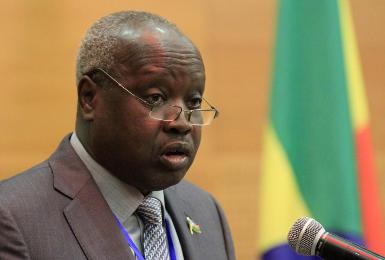South Sudan drops preconditions ahead of talks with rebels
By Tesfa-Alem Tekle
March 24, 2014 (ADDIS ABABA) – The South Sudanese government has dropped its demand that a grouping of seven politicians who were arrested at the start of the current conflict be barred from participating in peace talks in the Ethiopian capital, Addis Ababa.

The government accuses former vice-president turned rebel leader Riek Machar of attempting to oust president Salva Kiir in a coup, although the allegations have been repeatedly denied by all the accused.
The government had threatened to boycott the talks over the participation of the seven senior political figures who after their release decided to form a third bloc rather than join Machar, despite having similar political grievances. However, it has since backed down after IGAD – the Intergovernmental Authority on Development – rejected its demands.
The trial of four senior SPLM officials still on detention has begun in Juba. They have been charged with treason and plotting to overthrow the government.
The group of seven, who are joined by Rebecca Nyandeng, the widow of SPLM founder and the party’s former chairman John Garang, will now be allowed to participate as a third bloc as they did in the previous round of talks, which produced a tenuous ceasefire deal.
Attempts to involve South Sudanese civil society in the talks have not been welcomed by either side despite analysts warning that a successful deal will need to reflect more than just the military realities in Jonglei, Unity and Upper Nile – the states where most of the fighting has taken place.
No official timetable has been set for the resumption of negotiations, but they are expected resume before the end of the week.
Sudan Tribune understands that the South Sudanese government’s negotiating team arrived in the Ethiopian capital, Addis Ababa, on Sunday without Juba’s chief negotiator, former foreign minister Nihal Deng Nihal, who was expected to arrive on Monday evening.
The seven SPLM leaders who were jailed in connection to the alleged coup attempt on 15 December last year were released under the initial peace pact signed in Addis Ababa on 23 January.
The ceasefire deal has failed to halt fighting on the ground, with both sides accusing each other of violating the terms of the agreement.
UN officials have warned that if the planting season is missed, due to the insecurity and displacement before the rainy seasons begin, South Sudan could experience famine levels of malnutrition.
The UN refugee agency (UNHCR) has said Ethiopia may host up to 150,000 South Sudanese refugees, although the Ethiopian Administration for Refugees and Returnees Affairs (ARRA) says that that figure could increase to as many as 300,000 due to the high levels of food insecurity in South Sudan.
An estimated 10,000 people have been killed in the conflict. The split in South Sudan’s ruling party and army has reopened old wounds from the more than two-decades-long civil war that lead to the 2005 peace agreement which resulted in South Sudan’s secession from Sudan in 2011.
(ST)
